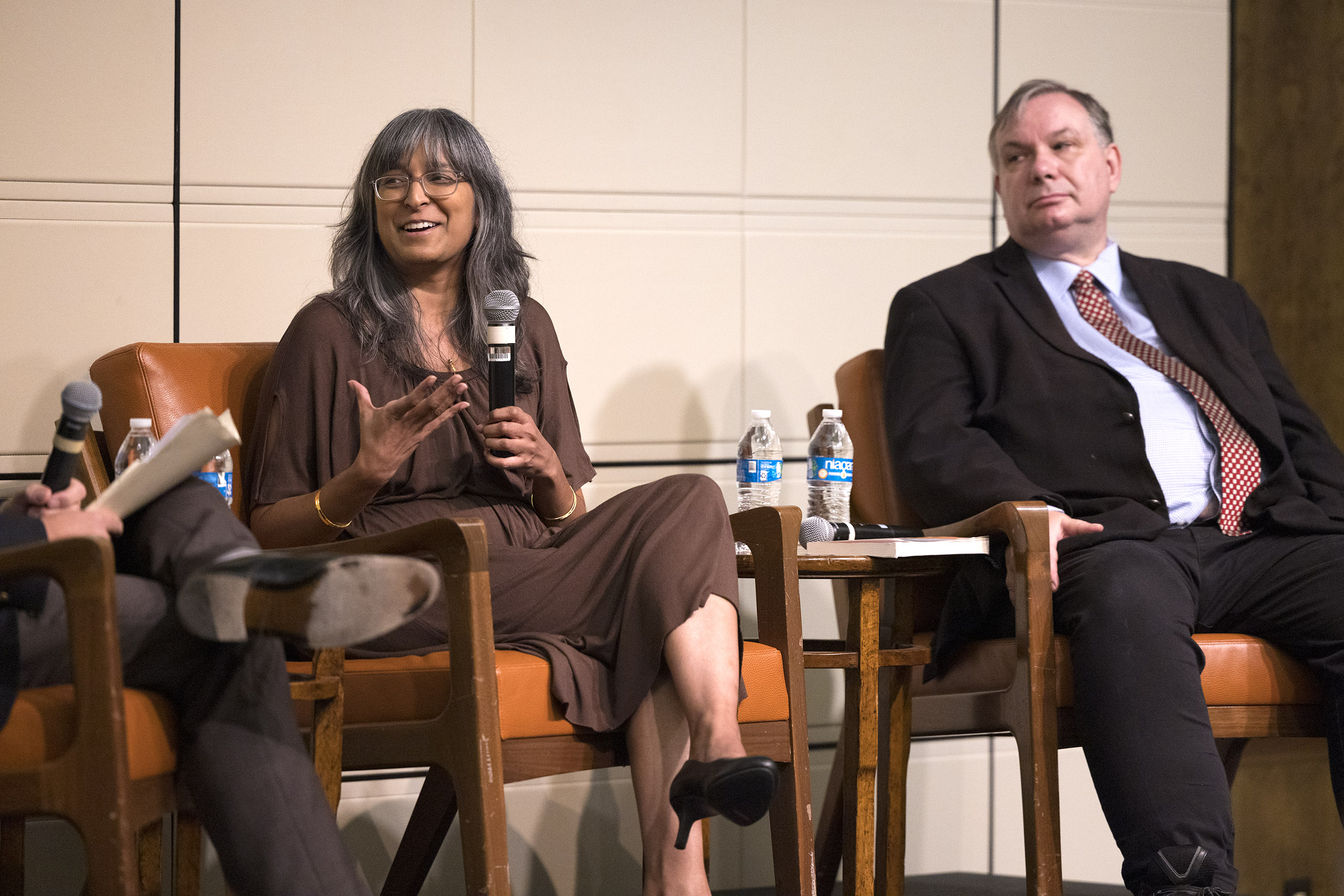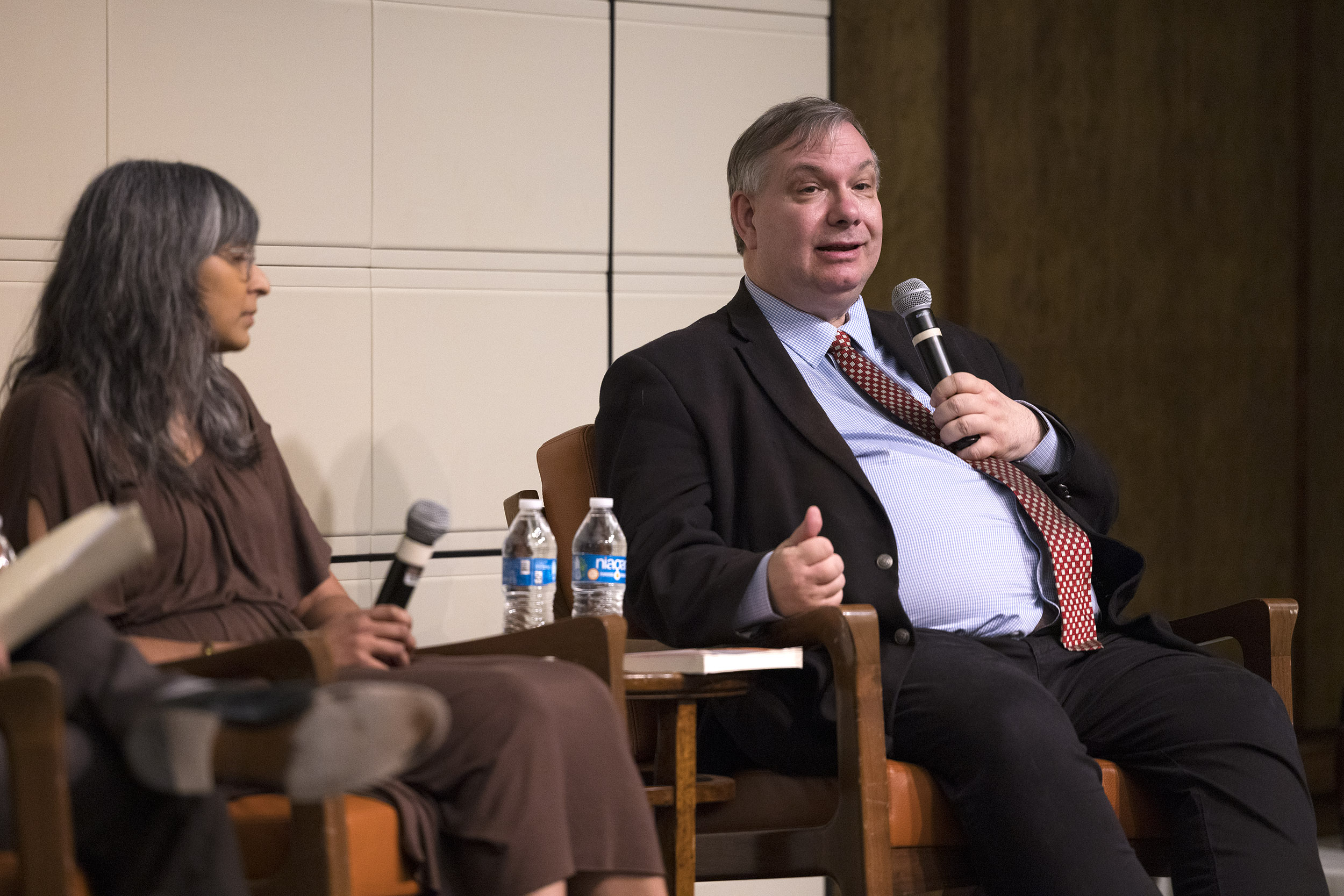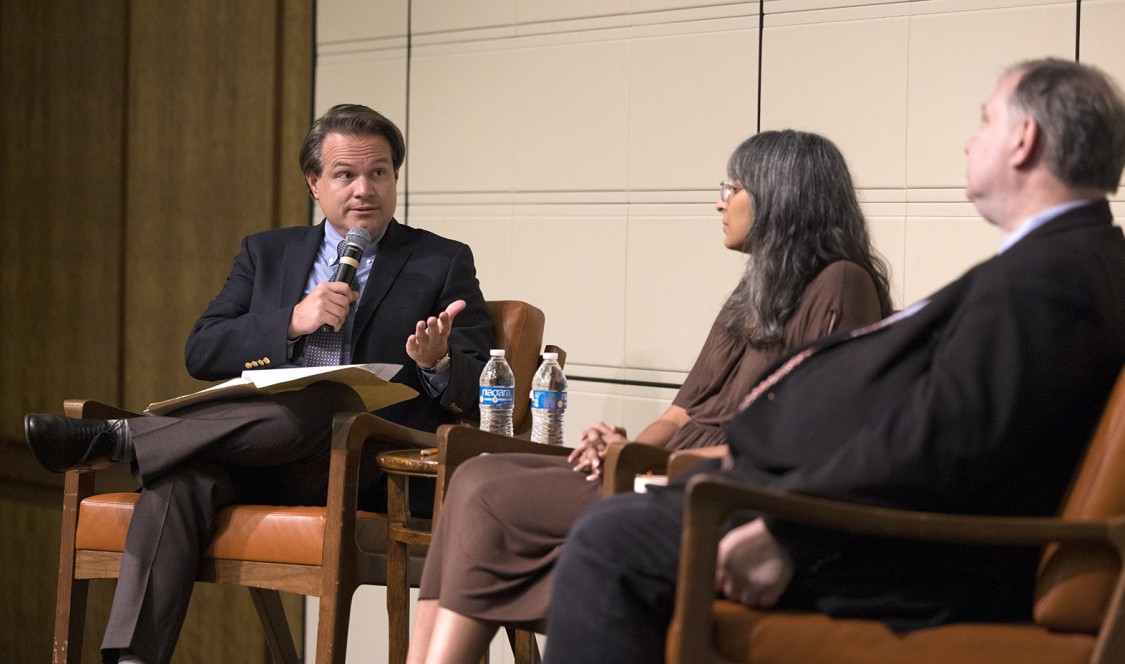The panelists at the Nov. 1 Athenaeum program, “Race and Election Law,” discussed a shared goal: Accessible, secure, and fair elections. Up for debate, however, was how to achieve that goal.
The lively discussion between John Fund and Gowri Ramachandran was moderated by visiting assistant professor of government, Zachary Courser ’99, the director of CMC’s Policy Lab.

Fund is national affairs columnist for National Review magazine, a contributor to Fox News.com, and an on-air analyst for NewsMax TV. Previously, he served as a columnist and editorial board member with The Wall Street Journal for 27 years. He is an author or co-author of several books, including his most recent, Our Broken Elections: How The Left Changed The Way You Vote (2021)
Ramachandran serves as senior counsel in the Brennan Center’s Democracy program. Her work focuses on election security, election administration, and combatting election disinformation. She holds a law degree from Yale, where upon graduation she served as a clerk for Judge Sidney R. Thomas of the U.S. Court of Appeals for the Ninth Circuit in Billings, Montana.
Courser launched the spirited conversation by addressing the controversial 2020 election and the accusations that it was “stolen”, and the results were illegitimate. Both panelists spoke on the damage of the rhetoric with Fund noting, “the grifters after the 2020 election, reportedly trying to prove Donald Trump had the election stolen out from under him, did a great deal of disservice to the dispassionate discussion on the issue.”
Also, particularly relevant in 2020, was the increase in mail-in voting as a result of the COVID-19 pandemic. Fund stated how in April of 2020, several months before the presidential election, states quickly shifted gears to increase mail voting. Fund added, “I'm all for voting, but mail-in voting carries some risks.” He went on to share an experiment conducted by CBS News in 2020 which looked at the effectiveness of the United States Postal System in Pennsylvania. They mailed 100 pieces of mail, in the same size as ballots, and within five weeks, only 97 of them had been received by the designated P.O. Box.

Ramachandran added her perspective to Fund’s point. “Yes, mistakes happen,” she said, expanding upon the importance of resiliency measures to help prevent errors within the election process. She added, “One really great example of a resiliency measure that many election administrators across the country implemented during the pandemic was ballot drop boxes.” She pointed out how when available, drop boxes were incredibly popular, particularly among Asian American voters.
Although they agreed that elections in the United States need to be accessible as well as secure in order to increase Americans’ level of confidence in elections, they disagreed about the best way to do that. The debate ended with questions from students about topics such as pre-clearance processes and rank choice voting.
This event was co-sponsored by the Jerome H. Garris Dialogue Series at CMC with additional support from The Open Academy and the Presidential Initiative on Anti-Racism and the Black Experience in America.

